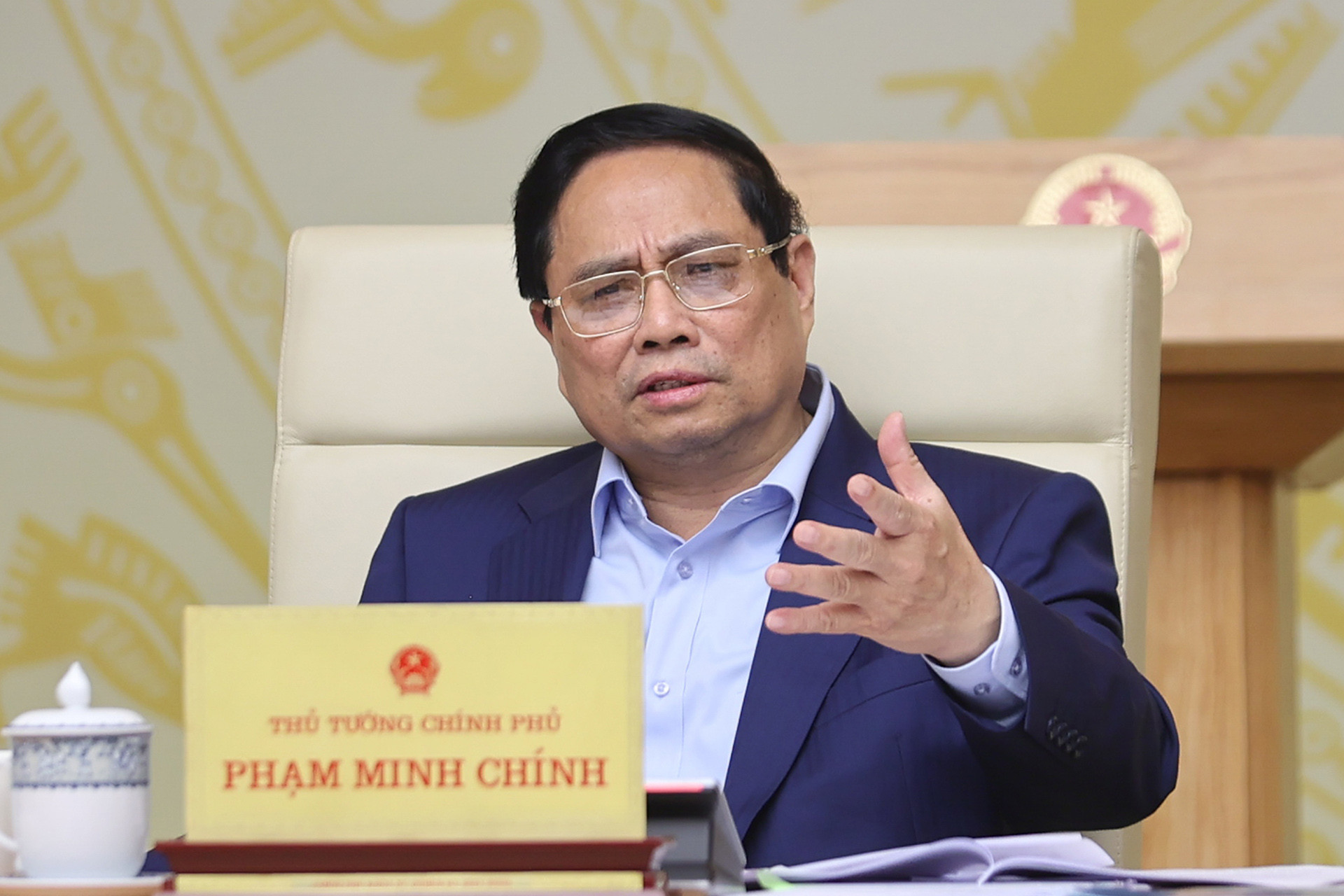Vietnam's GDP is targeted to grow by 8.3%-8.5% in 2025 and 10% or more in 2026. Prime Minister Pham Minh Chinh admitted this is a highly ambitious goal fraught with challenges but emphasized it is necessary and not impossible.

On the morning of July 16, Prime Minister Pham Minh Chinh chaired a virtual government conference with local authorities to discuss the 2025 economic growth scenario and the tasks and solutions needed to meet the targets.
During the meeting, Minister of Finance Nguyen Van Thang presented two proposed scenarios for 2025 GDP growth.
In the first scenario, the full-year growth rate is projected at 8%, with Q3 growth at 8.3% and Q4 at 8.5%. This would bring Vietnam’s GDP to over $508 billion, with per capita income surpassing $5,000.
In the second and more ambitious scenario, GDP growth is forecast at 8.3%-8.5%. Q3 growth would reach 8.9%-9.2% and Q4 at 9.1%-9.5%. This would result in a total GDP of more than $510 billion and per capita income of about $5,020.
The Ministry of Finance recommended the government pursue the second scenario to pave the way for 10% growth in 2026.
Concluding the session, Prime Minister Chinh outlined the main goals: macroeconomic stability, inflation control below 4.5%, GDP growth of 8.3%-8.5% in 2025 and 10%+ in 2026, and ensuring the economy's major balances.
Total social investment in 2025 is expected to reach around 2.8 quadrillion VND (approximately $110 billion), including 1 quadrillion VND ($39 billion) in public investment and 1.8 quadrillion VND ($71 billion) from other sources. The Prime Minister stressed the importance of controlling public debt, government debt, external debt, and the fiscal deficit while improving the living standards of the population.
He acknowledged the difficulty of the targets, warning that failure would negatively impact long-term goals, including Vietnam’s two centennial development milestones. However, he maintained that the goals are not out of reach.
PM Chinh urged the entire political system to act with resolve, efficiency, and accountability, following the “six clarities” principle: clear roles, tasks, deadlines, responsibilities, outcomes, and authority.
He called for proactive, flexible, and effective monetary policies. The State Bank of Vietnam should stabilize the exchange rate, strive to reduce interest rates, support production and livelihoods, and direct credit flows toward digital, green, and circular economies, as well as social housing.
He emphasized that monetary and fiscal policies must be well-coordinated to reinforce and stimulate economic growth.
Regarding strategic breakthroughs, the Prime Minister highlighted completing targets on highways, coastal roads, and rail projects. Local governments tasked with infrastructure projects must demonstrate self-reliance and accountability.
He also instructed the Ministry of Justice and related agencies to remove institutional bottlenecks and focus on developing high-quality human resources, especially in emerging sectors like digital, green, and circular economies.
In agriculture, PM Chinh stressed the importance of food security and expanding exports to markets such as China, the Middle East, Africa, and South America.
On culture and tourism, he called for the development of cultural and entertainment industries and suitable visa policies, aiming to attract 25 million international visitors in 2025.
He demanded more robust decentralization, resource allocation, execution capacity, and supervision. Simplifying administrative procedures and reducing burdens for citizens and businesses were also highlighted.
State-owned groups and corporations must aim for growth rates around 10%, exceeding the national average, by using resources efficiently.
Local authorities were encouraged to act proactively and creatively, without passivity or overreliance, in line with their delegated powers.
A flexible, periodic monitoring and evaluation mechanism must be established to guide adjustments as needed. Grassroots officials should be competent, people-oriented, and capable of resolving local issues effectively.
Finally, the Prime Minister directed all ministries and localities to organize Party Congresses successfully without letting political preparation hinder economic growth.
He called for a government resolution on 2025 growth targets that is realistic, actionable, and results-oriented, with systemic, synchronized, and impactful measures to achieve the goals.
Tran Thuong